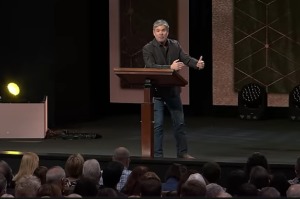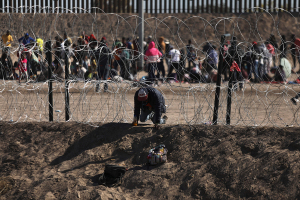Something rotten in Denmark? Thousands of Danes protest plans to abolish Christian holiday

A plan to eliminate a public Christian holiday in Denmark to beef up defense spending drew thousands of protesters to the streets of Copenhagen.
On Sunday, crowds as large as 50,000 took part in what was Denmark’s largest demonstration in more than a decade over a proposal to scrap “Great Prayer Day,” a nearly 330-year-old holiday that falls on the fourth Friday after Easter, according to Reuters.
About 50,000 people in Denmark on Sunday took to protest a government bill put forward to cancel the Christian holiday (Great Prayer Day). #Denmarkpic.twitter.com/ucNgbcxsCA
— Jen doesnt hate your Grandma (@Jinkies78) February 6, 2023
The proposal was first introduced in December by Denmark’s Social Democratic Prime Minister Mette Frederiksen as a means of cutting spending in order to boost defense spending levels to a NATO-led target of 2% of GDP three years ahead of schedule, Reuters reported.
As part of a new bipartisan government, Frederiksen is calling for the holiday’s elimination to free up some 4.5 billion Danish crowns — or roughly $654 million — to meet that target.
By abolishing Great Prayer Day, the government anticipates higher tax revenues that could be used to cover the spending gap.
While Frederiksen’s coalition holds a slim majority in the Danish parliament, the proposal is expected to pass despite opposition from union leaders and economists who have cast doubt on the proposal’s projections, according to Reuters.
Essentially a collection of minor Christian holy days consolidated into one day, Great Prayer Day was initially created to be a day of prayer and fasting when it was officially made a holiday in 1686, but in modern times, it’s more commonly associated with hot wheat buns known as varme hveder.
In earlier times, church bells would announce the start of Great Prayer Day and all work and commerce — including baking — were suspended until the holiday was over. In addition to fasting, Danes were urged to abstain from any “worldly vanity” such as gambling and traveling.
As a way of circumventing the work stoppage, bakers in Denmark would bake the wheat buns with a generous helping of butter on Thursday to preserve them until they could be heated up and enjoyed the day after.
While baking is no longer forbidden, Great Prayer Day in modern Denmark has more recently served as a day to gather with other Christians from various denominations to pray for the nation and for the world.
In addition to Great Prayer Day, there were 22 holy days in the state of Denmark by 1770, but following a number of government reforms, roughly half of those days were abolished, including Three Kings’ Day and Saint John’s Day. Great Prayer Day is one of the days that made it through those reform efforts.
The effort to abolish the Christian holiday is the latest government intrusion on religious freedom after the introduction of a draft law in 2021 that would require all sermons to be translated and submitted to the government.
While introduced as a way to prevent acts of Islamic terrorism, churches were also included in the measure in a nod to political correctness, since restrictions cannot solely be placed on mosques, according to one report.
But after bishops in Europe began voicing their protests, the Danish Council of Churches called on Fredriksen to back down from the “discriminatory and ill-considered” legislation.
Ian M. Giatti is a reporter for The Christian Post. He can be reached at: ian.giatti@christianpost.com.





























